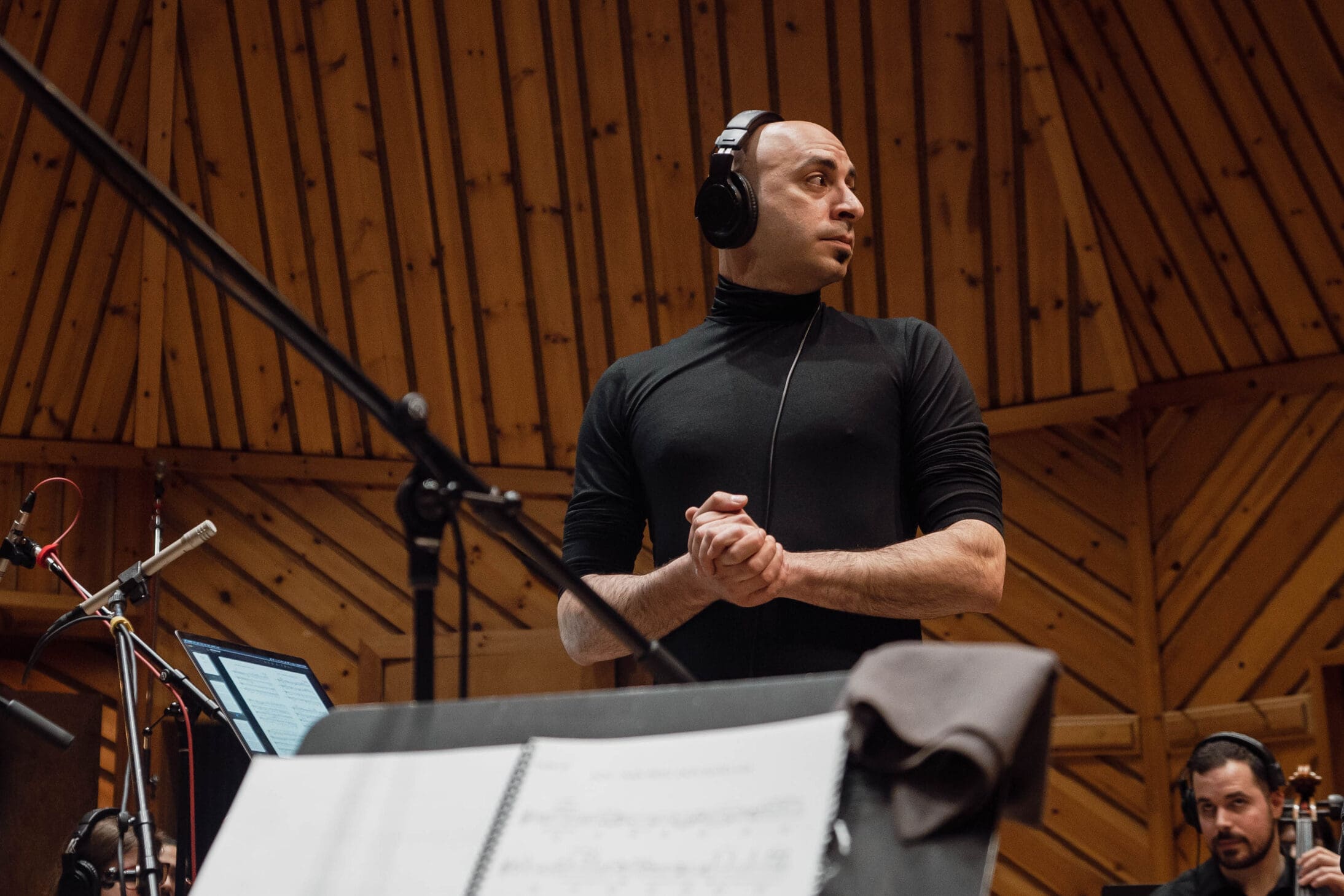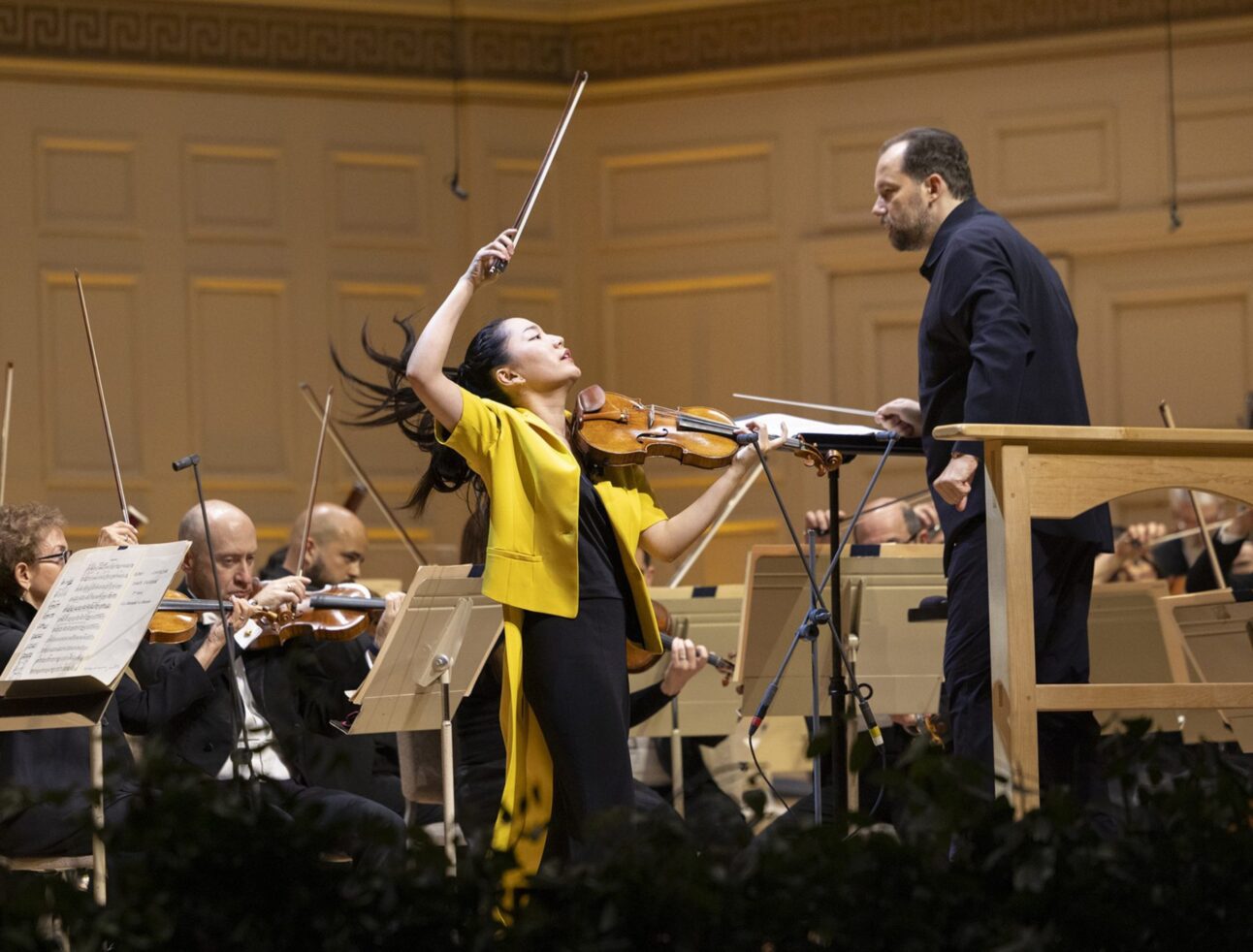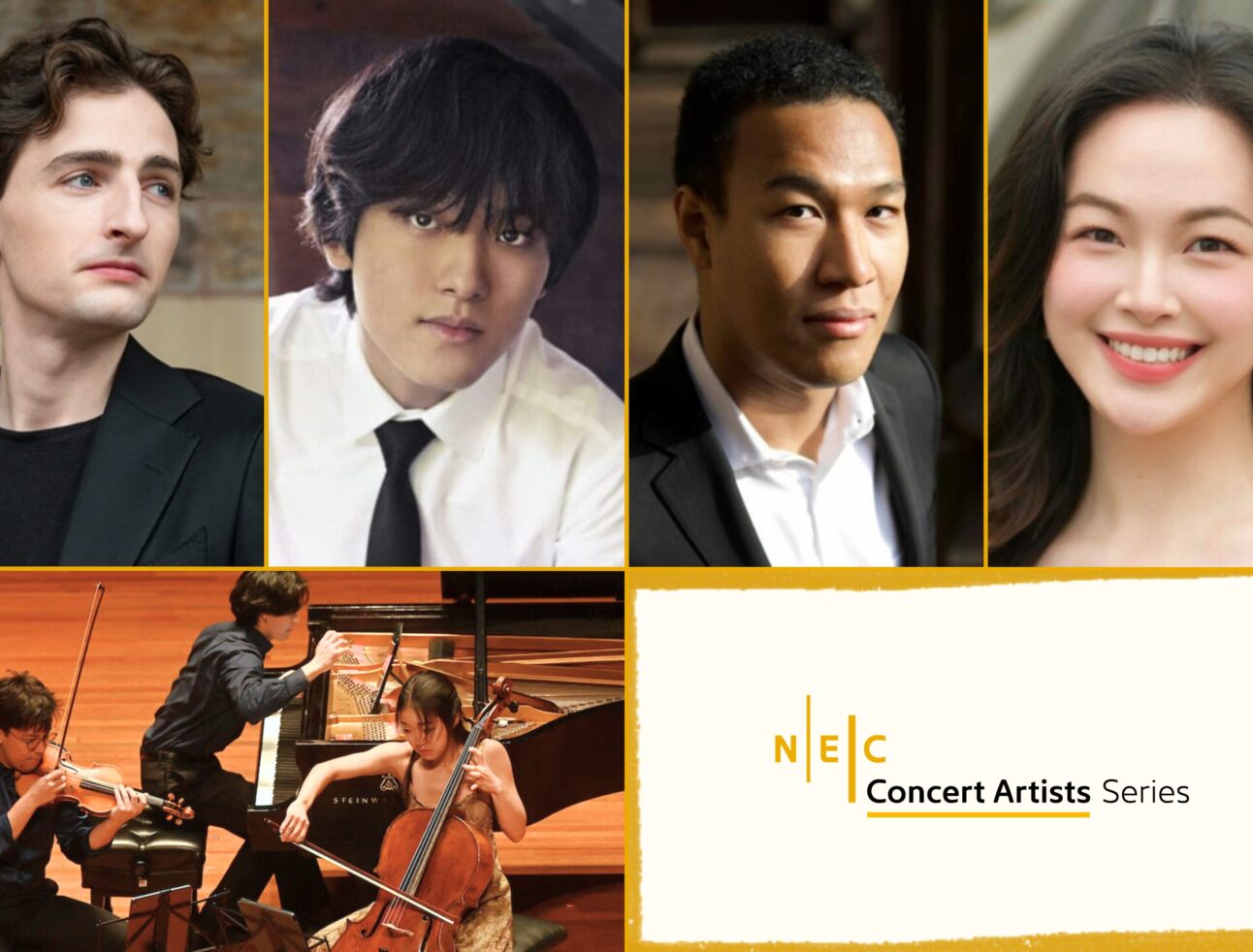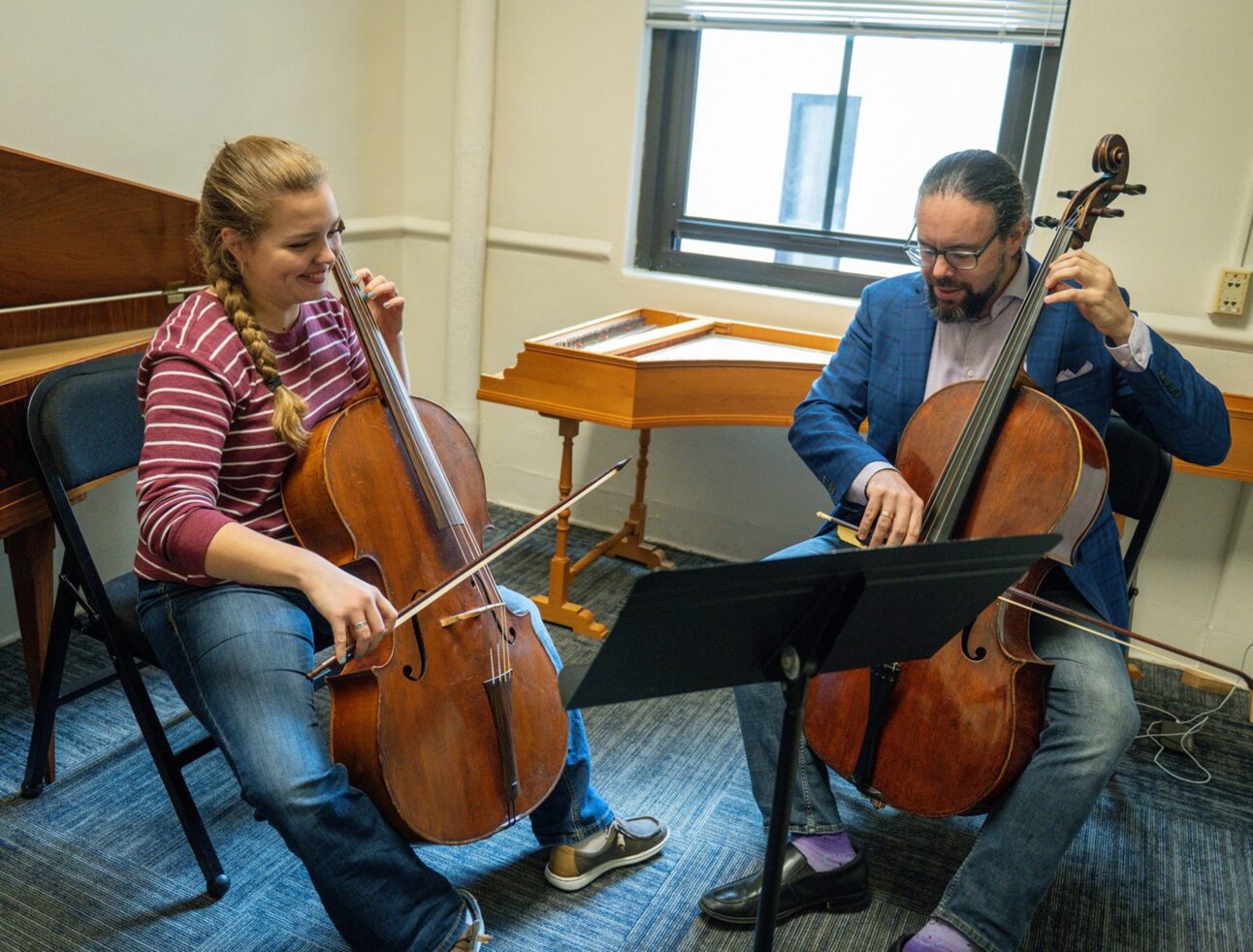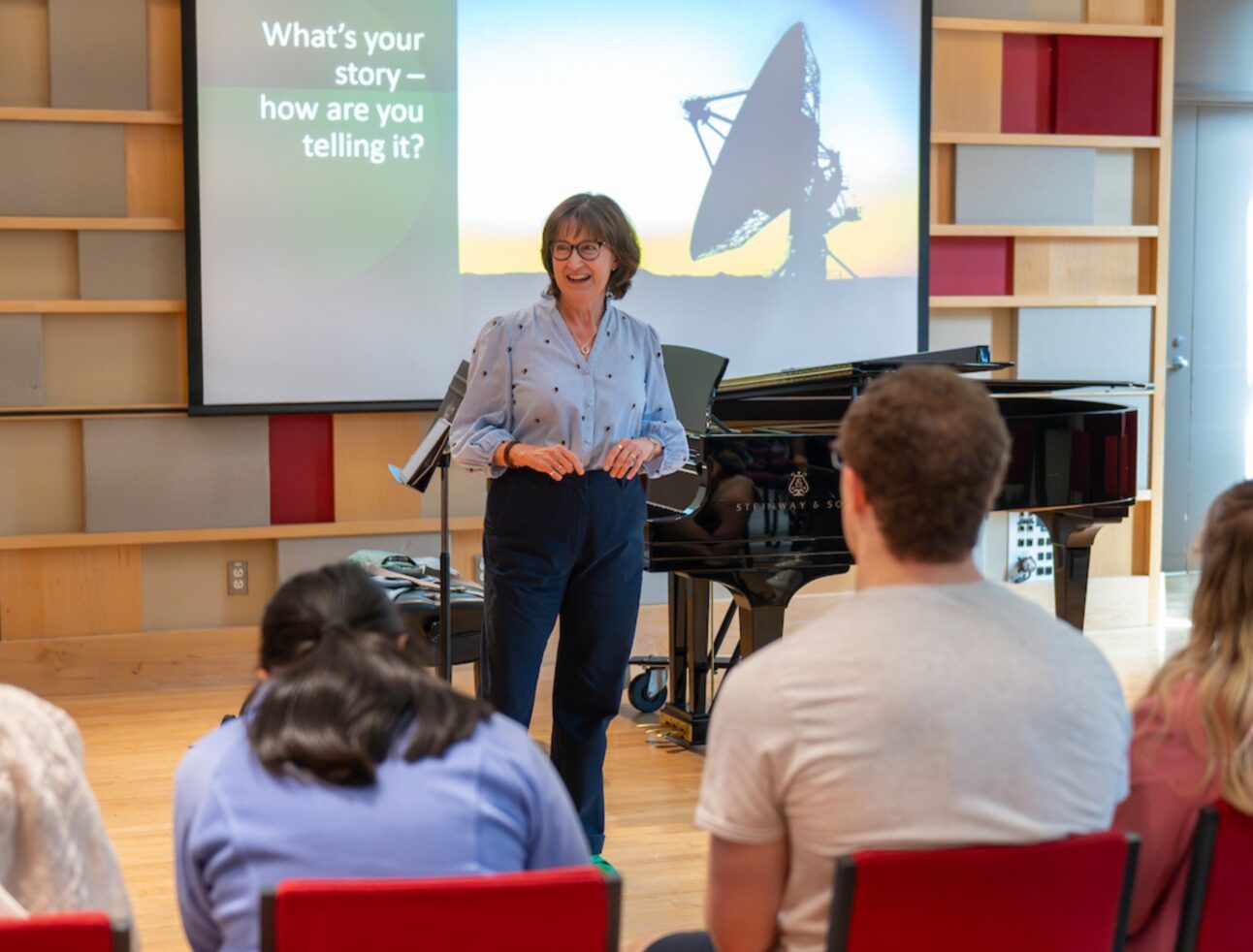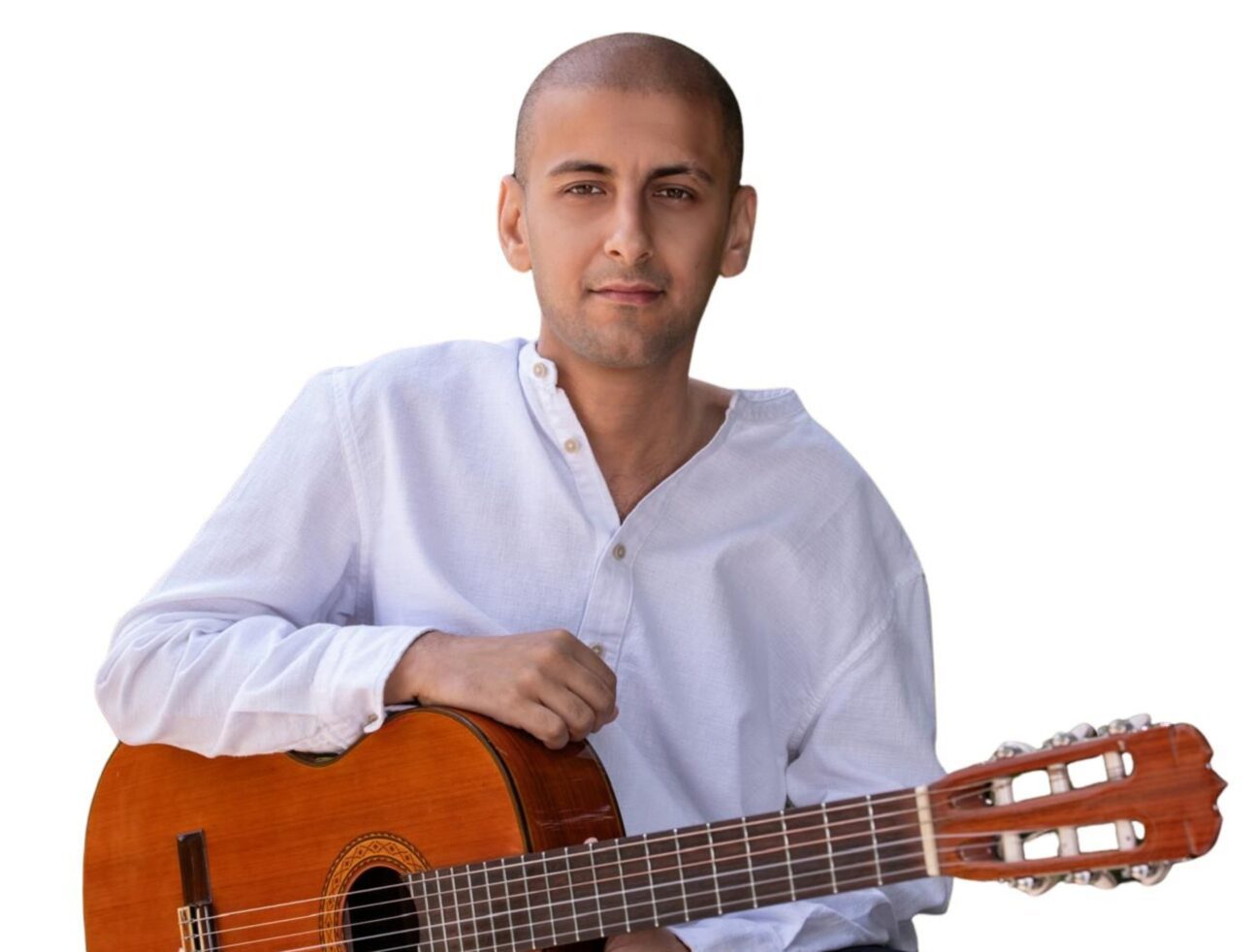When Akram Haddad played Assassin’s Creed for the first time in 2007, he thought the music was good but deserved a better representation of its setting’s rich musical history. Fifteen years later, Haddad would be called on by composer Brendan Angelides to help orchestrate and color the soundtrack for Ubisoft’s latest release in the franchise: Assassin’s Creed Mirage. “I never thought that I would [take part in shaping the soundtrack] of the game. It’s interesting to see how you evolve and become a part of your past,” Haddad says.
The invitation was natural. Haddad is a Palestinian composer, pianist, and current faculty member in the Contemporary Musical Arts department at NEC, teaching Middle Eastern music and leading the World Music Ensemble. He has spent his career both writing and celebrating Arabic and Western music. Angelides was tasked with writing a score that complemented the existing Assassin’s Creed games while maintaining historical accuracy for 9th-century Baghdad, the game’s setting, that would be familiar to Western listeners. This challenge made Haddad’s background invaluable.
Coming onto the project, Haddad expected to help with orchestration for the strings. However, his role quickly expanded. “For two months, I sent him ideas, and he sent me ideas, flushing things out and finessing pieces. We would sit together on Zoom, or I would go to him in LA. We collaborated on different things…I was delighted to see that my input was valued; he acknowledged my contributions and treated me as a composer.”
The depth of Haddad’s work on the collaboration earned him a “composer” credit on the album, a gesture that Haddad recognizes as unusual. “I don’t take it for granted because I see others working in the industry, and they are labeled as ‘orchestrators’ or ‘performers,’” Haddad says. He smiles and adds, “I think Brendan was very humble.” According to Haddad, Angelides knew that his own power came from his background in electronic music and composition but that he needed the melodies and influence of artists like Haddad, Emel Matholuthi, and Layth Sidiq to create a powerful album that honored its Arabic setting while remaining accessible to Western audiences.
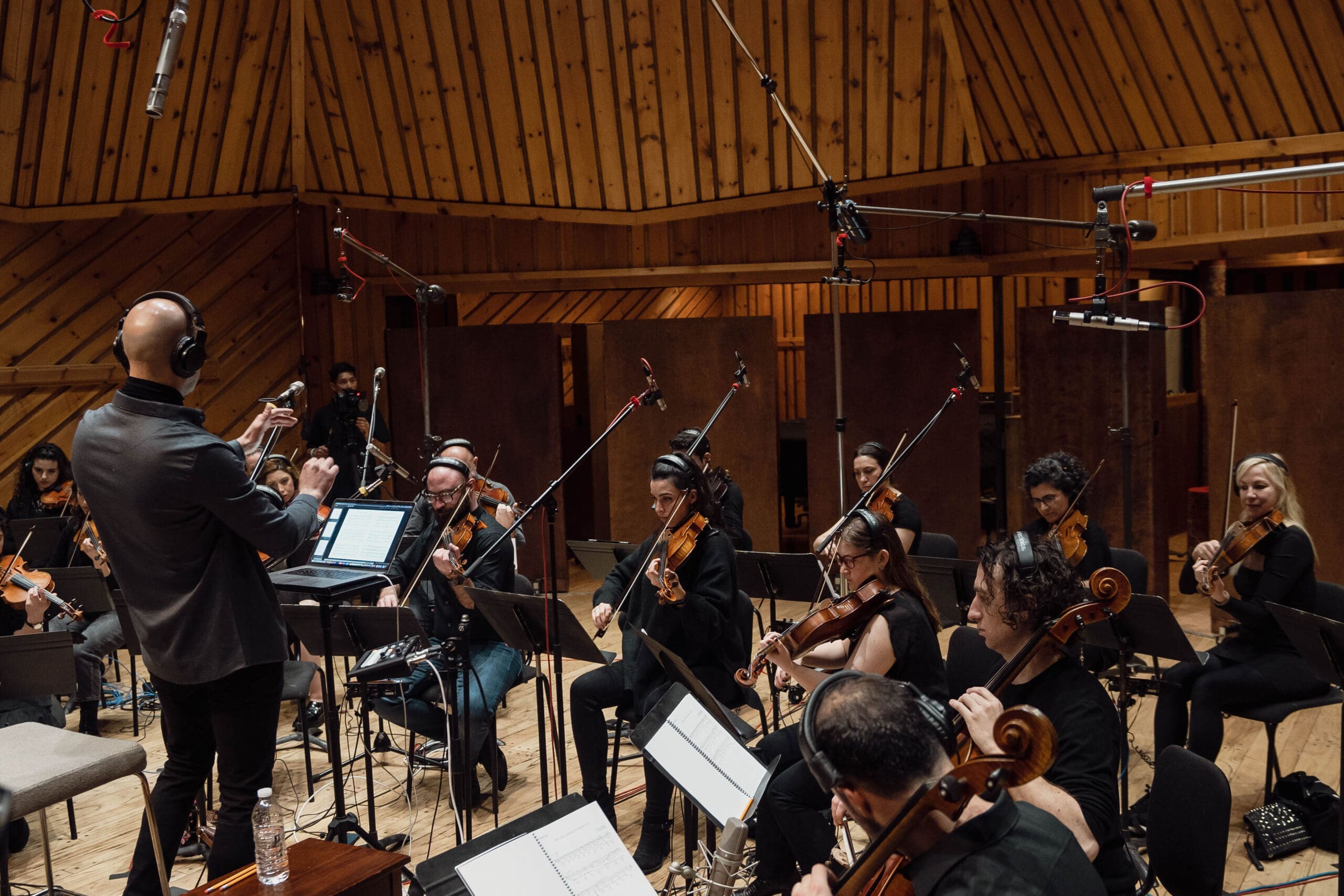
When asked what he hopes Western gamers will take from the musical experience, Haddad says, “Melody…In Western music, we adhere to particular scales, while the Arabic musical tradition encompasses a broader array of scales, “Maqamat,” including quarter tones. These quarter tones, often misconceived as being ‘out of tune’ in Western ears, are, in fact, a matter of different musical sensibilities. When these unique scales and notes are integrated into Western compositional contexts and well-treated harmony, they introduce an entirely new musical vocabulary accessible to everyone.”
The blending of musical style, scales, and approach is important to Haddad, though he looks forward to a day when Western composers stop “experimenting” with the microtonal music and instead embrace the melodies in their work. “Today’s music is not a regional phenomenon; it’s global,” he says.
According to Haddad, Angelides had a story in mind for the game after reading the script but before seeing gameplay footage. This approach gave Haddad the freedom to give each piece a new coloring. “That’s what I gave the score: coloring. I’m a pianist. I work with choirs. I compose music for them. For this, I had to find many different ways to accompany a choir while singing maqamat scales. I had a fixed piano, a fixed tuning, that I had to use to give colors to these melodies that do not have fixed elements.”
Those colors are evident in Mirage. The music is a seamless fusion of Arabic and Western influences. The ornamentations of the strings and the introduction of microtonal scales mix well with the overall texture of Angelides’s score without sounding out of place. This was quite the task, given that a traditional classical album is between seven and ten tracks, and Mirage hovers near fifty.
When asked how the length of this project compared to his previous works, Haddad says, “We’re talking about 102 or 103 minutes of music.” Of this, Haddad’s contribution amounted to about half an hour. “Another composer composed specifically for whenever [the main character] went to meet somebody in a courtyard. There was so much music and exploration of ideas. What was important was the connection between those ideas, to make them feel connected. It’s easy to hear a theme in a movie for ninety minutes; however, in a game, a lot depends on other things happening simultaneously.”
This response is one of the most interesting things about video game composition. While the classical canon was often a response to the world around it, video game pieces commonly respond to the live events on screen. Haddad says, “Because Mirage is an open-world game, you can choose wherever you want to go, but every direction brings a different surprise, and every surprise brings new music. Well, it sounds like a surprise to the player, but we had to work on it beforehand for the audience to enjoy.”
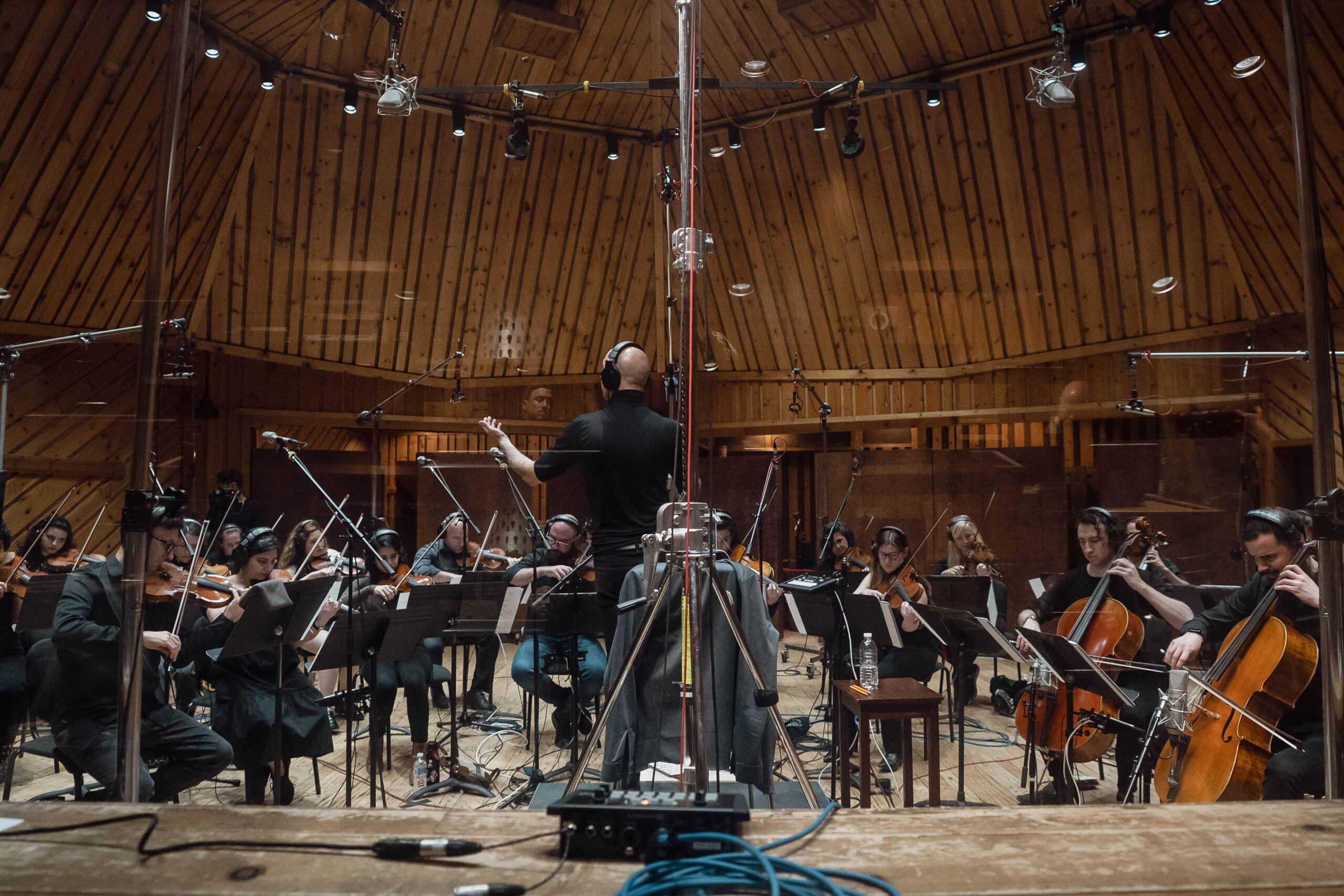
The change in perspective and workflow is something that Haddad believes he will carry with him as a composer, musician, and instructor. For him, while the future of music is bright, it is a rapidly shifting landscape. As a composer taught to write music with a pen and paper, one of the most surprising parts of the composition process for Mirage was the use of a Musical Instrument Digital Interface (MIDI), which is an industry-standard protocol that enables electronic musical instruments, computers, and other related devices to communicate, control, and synchronize with one another.
At the beginning of their collaboration, Haddad wrote his notes into a PDF and emailed them to Angelides. He laughs a little, saying, “I emailed [Brendan] my written score, and he said, ‘Oh, can you send it by MIDI so I can listen to it?’ Of course, yes, definitely. It’s much easier. So, we started exchanging all of these ideas via MIDI. Eventually, yes, I had to write a score for the players to play it, and it was fabulous. The studio recording? Amazing, conducting and leading the New York Arabic Orchestra at the magnificent PowerStation studios in NYC was an exceptional experience…However, when it came to the mixing and mastering, we needed some power that we could only get from synthesizers and strings generated specifically for virtual instruments.”
The beauty of this project, according to Haddad, was that blending the acoustic and electronic elements brought the work to its height. He encourages all musicians, especially his students in NEC’s Contemporary Musical Arts department, to learn how to use digital tools to expand their lexicon and become more global citizens of music.
With the Mirage soundtrack shaping up to be one of the best video game soundtrack releases of the year, Haddad is already planning for his next release in 2024. He says, “I’m working on a new Album. In truth, it represents a lot of what I do because I come from [a background in] classical composition, jazz, improvisation, and Middle Eastern Arabic music. It’s combining all of these things in a way that’s a little bit different than my previous work.” If Mirage is any indication, the album will surely be another beautiful blend of Arabic and Western tunes.
You can find more of Haddad’s work on his website at https://www.akramhaddadmusic.com/.
